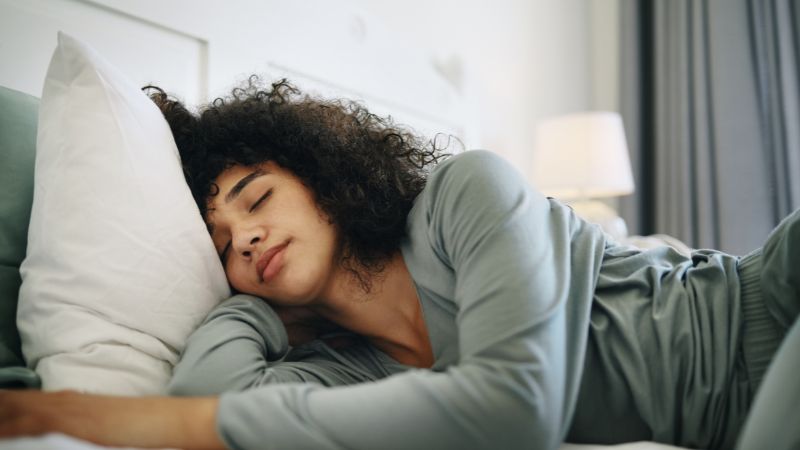Many people turn to melatonin to help them sleep better. Recently, more people are asking: Does melatonin help with anxiety? While melatonin is best known for promoting rest, research shows it may also calm the mind and support emotional well-being.
If anxiety and sleepless nights are affecting your life, you are not alone. Millions of adults struggle with sleep problems caused by stress, worry, or sleep disorders. Improving both sleep and emotional balance can make a big difference.
Questions Answered in This Article:
Our Alcohol Addiction Treatment Programs

Scottsdale Rehab
Luxury Personalized Rehab

Hart Rehab
Holistic Luxury Personalized Rehab

Scottsdale Detox
Luxury Medical Detox
What Melatonin Is and How It Works
Melatonin is a hormone produced by the pineal gland, a small part of the brain. It controls your circadian rhythms, which are your body’s natural sleep-wake cycle. At night, melatonin levels rise, signaling your body that it’s time to rest and prepare for sleep. In the morning, melatonin levels naturally drop, helping you wake up and feel alert.
Melatonin is important not just for sleep. It also influences mood, stress response, and even blood pressure. Low melatonin can disrupt sleep patterns, making it harder to rest, which may worsen anxiety disorders over time.
Many people use melatonin supplementation when sleep is disrupted by jet lag, shift work, or sleep disorders. In addition to helping people fall asleep, melatonin may improve sleep quality and support overall mental health, including reducing anxiety. When used correctly, it can help the body maintain a healthy rhythm and promote both physical and emotional well-being.
Melatonin levels can also be influenced by lifestyle factors. Exposure to bright light at night, irregular sleep schedules, and excessive screen time can lower natural melatonin production. Supporting healthy habits alongside supplementation often leads to better outcomes for sleep and anxiety management.
How Melatonin Affects the Body and Mind
Melatonin does more than help you fall asleep. It works with parts of the brain that control mood and stress. Balanced melatonin helps the body relax and reduces feelings of worry or tension.
Recent research supports this link. A 2023 meta-analysis with over 400 participants found that melatonin supplementation significantly reduced anxiety symptoms, especially in women. This shows that healthy melatonin levels can improve both sleep and emotional health.
Melatonin also acts as an antioxidant. This helps protect the brain from stress-related damage. When your body rests and repairs, your mind feels calmer and more stable.
Beyond supplements, natural melatonin production is influenced by healthy routines. A dark, quiet sleeping environment, consistent sleep hours, and reduced evening screen time can help the body produce melatonin naturally. These practices amplify the hormone’s calming effect and support mental health over time.
The Link Between Melatonin and Anxiety
Low melatonin can cause poor sleep, which often worsens anxiety. Poor sleep affects the brain’s ability to manage emotions, increasing stress, irritability, and worry.
Supporting your sleep-wake cycle with melatonin may help in reducing anxiety. Studies show melatonin can lower cortisol, the “stress hormone,” helping both the body and mind relax.
Better sleep and stable circadian rhythms improve emotional balance and make it easier to handle stress. Even small improvements in sleep quality can have noticeable effects on mood and mental health.
Melatonin for Daytime Anxiety: What You Should Know
Some wonder if melatonin for daytime anxiety works. Melatonin makes you drowsy, so daytime use is usually not recommended. It may cause fatigue, reduce focus, or disrupt your natural sleep cycle.
However, people with irregular schedules—like night-shift workers—or those with sleep disorders may benefit from carefully timed doses. A doctor can guide the best timing and dose to help with circadian rhythms and reduce anxiety without affecting daytime alertness.
Remember, melatonin for anxiety is not a complete solution. It works best alongside healthy sleep habits, stress management, and professional care.
Research on Melatonin’s Role in Reducing Anxiety
Many studies show that melatonin can help with anxiety. It works with brain chemicals and areas that control emotions. In clinical trials, people facing surgery or chronic insomnia felt calmer after taking melatonin.
Research shows that melatonin intake leads to lower anxiety compared to those who do not take it. These effects are often short-term, but they demonstrate that melatonin can be a helpful part of a broader plan for supporting mental health.
Melatonin may also reduce inflammation and oxidative stress, which can affect emotional health. For those with anxiety, melatonin can support other treatments for anxiety, like therapy or TMS.
How Melatonin Supports Sleep and Mood
Melatonin’s benefits go beyond helping you fall asleep. Good sleep allows the brain to process emotions properly. When your sleep-wake cycle is balanced, your body can reset each day, helping you handle stress more calmly.
Using melatonin supplementation with consistent sleep habits can improve emotional resilience and reduce symptoms of anxiety disorders. For people with sleep disorders, better sleep can lower irritability, improve focus, and help manage stress better.
Practical Tips for Using Melatonin Safely
Melatonin is generally safe for short-term use. Some people may experience mild side effects like drowsiness, headaches, or stomach discomfort. Using melatonin for the long term without guidance may affect the body’s natural hormone production.
Tips to use melatonin safely:
- Start with a low dose and adjust under a doctor’s guidance
- Take it 30–60 minutes before bedtime
- Avoid daytime use unless recommended
- Combine with sleep-friendly habits, like limiting screens before bed and keeping a regular sleep schedule
Melatonin can also interact with medications that affect blood pressure or mood. Always talk to your doctor before using it regularly.
Lifestyle Habits That Work With Melatonin
Melatonin works best when combined with healthy habits:
- Mindfulness or meditation: Reduces mental tension and worry
- Regular exercise: Supports circadian rhythms and lowers cortisol
- Balanced diet: Certain nutrients help the body make melatonin naturally
- Consistent sleep schedule: Improves the sleep-wake cycle and sleep quality
- Light exposure management: Getting natural sunlight during the day and reducing artificial light at night helps melatonin production
These habits, together with melatonin, can reduce anxiety disorders and support long-term mental health.
Other Ways to Support Natural Melatonin Production
Beyond supplements, you can encourage your body to produce melatonin naturally:
- Avoid caffeine or heavy meals before bedtime
- Keep your bedroom dark and cool
- Limit screen time in the evening
- Maintain a regular sleep schedule, even on weekends
- Spend time outside during daylight hours to strengthen your circadian rhythm
These simple practices can improve sleep quality and make melatonin more effective. Over time, they also contribute to lower anxiety and better emotional balance.
Melatonin, Better Sleep, and the Path to Calmness
So, does melatonin help with anxiety and better sleep? For many people, yes—especially when stress and poor sleep feed into one another. Melatonin supplementation can help you fall asleep faster, improve your sleep-wake cycle, and support a calmer mood.
Melatonin works best with healthy habits, stress management, and professional care. Understanding the effects of melatonin and its role in mental health helps you use it safely and effectively.
If anxiety continues to affect your life, it may be time to look beyond sleep aids. At Scottsdale TMS, we provide science-backed treatments designed to reduce anxiety and restore emotional stability. Our team helps you regain calm, confidence, and peace of mind.

